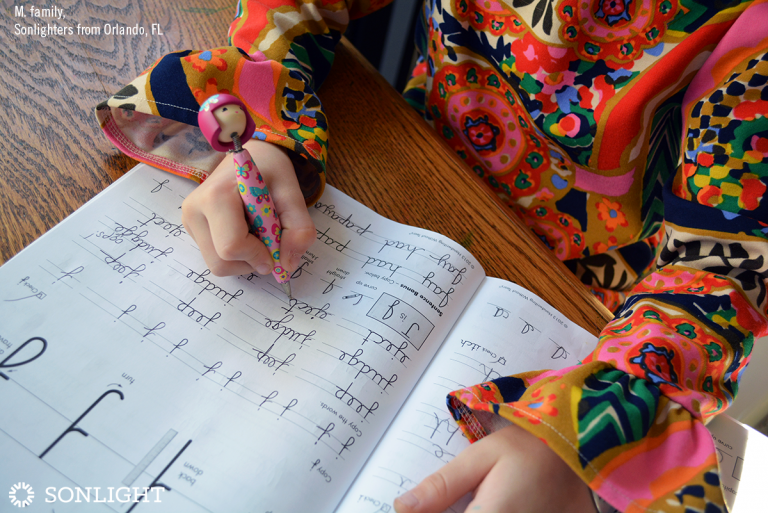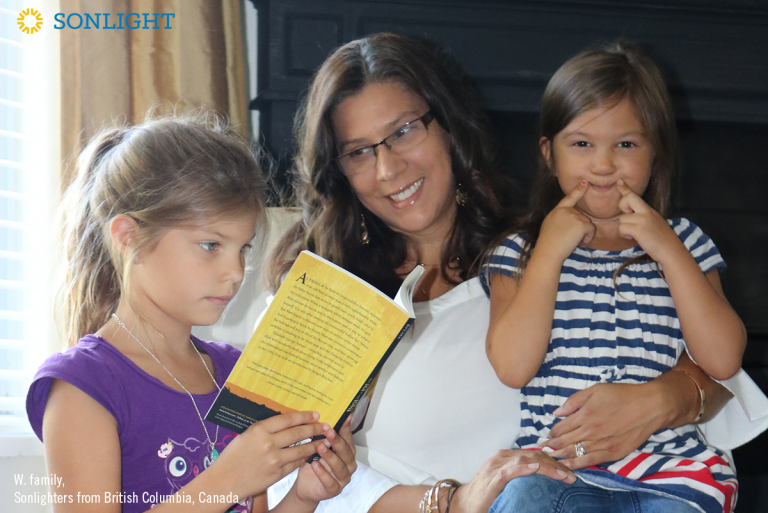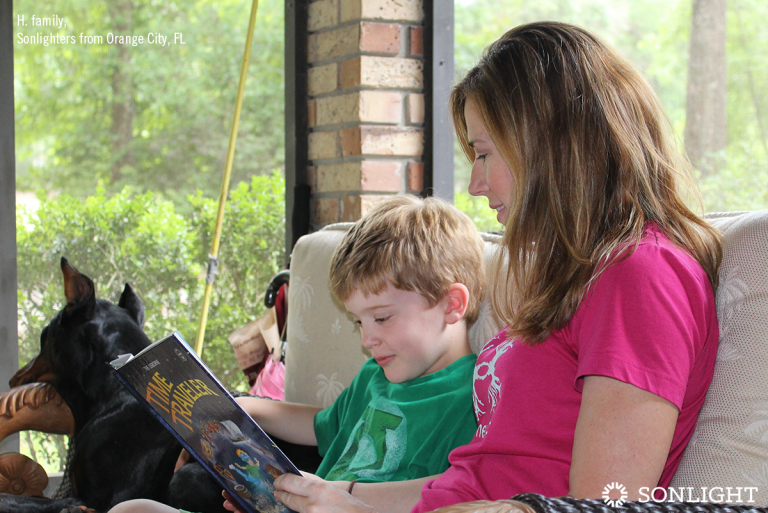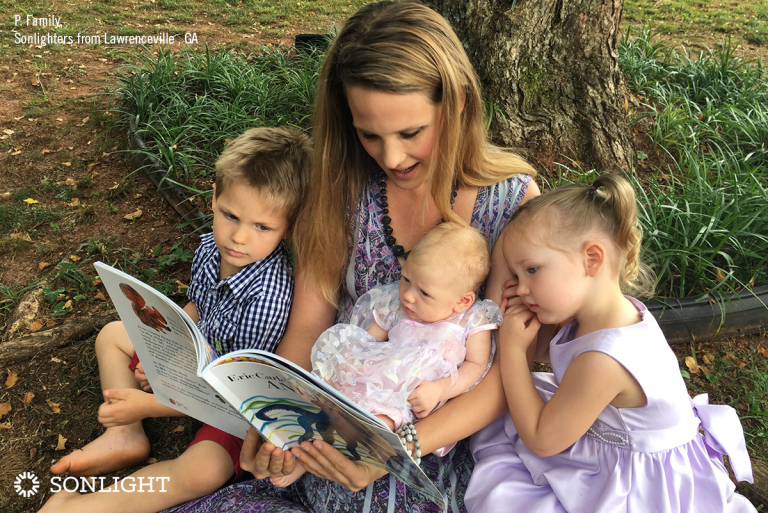
Teaching handwriting can be frustrating and tearful for both parent and child alike, can't it? After you decide which handwriting style is right for you, there's pencil grip, paper slant, letter formation, spacing, letter size, posture, and practice, practice, practice. (I left out the part where mistakes become eraser holes in the paper, but we've all been there.)
And judging by the sheer quantity of posts which pop up in forums and online homeschool groups, there are a whole lot of homeschool moms really concerned about teaching handwriting properly. You've seen it, right? Or maybe you've even uploaded a photo of your child's written work yourself, with the caption, "Does this seem right for his/her age?" Anxiety, frustration and fear of being behind in handwriting are are all too common, but it doesn't need to be this way.
Does Your Handwriting as an Adult Adhere to Textbook Standards?
Unless you're an especially skilled calligrapher, I'd venture to say your penmanship does not resemble the Zaner-Bloser or D'Nealian you learned in elementary school. (I know mine certainly does not.) The truth is, most of us ended up creating our own hybrid form of lettering. Over time, we drop some of the more time-consuming cursive swirls, modify letters, and even combine elements of manuscript and cursive. This isn't even always intentional but naturally flows from the way each individual person holds a pencil, forms letters, and moves through each word.
Think about it: if we all wrote exactly according to the standards in penmanship textbooks, there would be no forgery. Crime-solving handwriting analysts would be out of a job. A signature would mean nothing. And yet, we expect our kids' copywork to look exactly like the sample sentence!
The Goal of Penmanship is Fluency, Not Perfection
The goal of handwriting exercises is not perfection. There, I said it. Isn't it freeing?
The author of your handwriting curriculum did not assign all those tracing loops and arrows and letters and paragraphs with perfection in mind. While self-discipline is required to complete the exercises—and that's an essential skill to master—the ultimate end goal is fluency.
We want our children to have the ability to easily let the thoughts flow from brain to paper, without stopping to think about the way fingers are positioned or the hand is moving. That's why we teach writing. Following suggested stroke order and practicing regularly streamlines fluency, but in the end, individual differences in letter formation fall under the category of personalities, not faults.
While my handwriting wouldn't win any calligraphy contests, it's legible and moderately neat. I once had a boss, though, who took my penmanship personally. After meetings, she would walk back to my desk, ask to look at my personal notebook, and then require me to rewrite it all. And these notes weren't even any sort of meeting minutes, they were simply for my own use. We all agree this is appalling in the workplace, and yet somehow we manage to do the same thing to our own struggling children. If I'm ever tempted to stand over my daughter and address each time she strays from the handwriting standard, I remember this experience, and I step back.
When we know the goal of penmanship is fluency, not perfection, we can rest in confidence and freedom, knowing the goal is in sight.
Not Everyone Will Have Beautiful Handwriting—and That's Okay
There's one more aspect to letting go of perfection in writing: we're not all the same. Each one of us is a unique creation, formed and breathed into being by the hand of God. “We are God's masterpiece,” says Ephesians 2:10 in the New Living Translation. And we all have differing abilities.
In Genesis 49, Naphtali is described as “a doe let loose; he gives beautiful words.” But do you know what? Out of the twelve families of Israel, Naphtali is the only one described this way. I've always thought this was such a beautiful reminder of a timeless truth: we don't all share the same gifts.
Exodus 35 echoes this idea, too. Here we read of Bezalel, called by God "to make designs for working in gold and in silver and in bronze, and in the cutting stones for settings, and in the carving of wood, so as to perform in every inventive work." And Oholiab was filled by God with the "skill to perform every work of an engraver and of a designer and of an embroiderer...as performers...and makers of designs."
These families were clearly artistically gifted, and creating beauty came more easily to them than to others. Did you notice, though? God didn't require everyone to make these designs! It was true then, and it's just as true today. If your natural tendencies and talents, and those of your children, don't tend toward artistic flourishes, that's okay.
We all have different areas of excellence. Celebrate those. Practice penmanship, yes, but in handwriting, as in other areas, allow the delightfully unique qualities of your children to shine through.
You will love our free guide A Beginner’s Blueprint to Language Arts: The No-stress Guide to Teaching Language Arts with Purpose. Download it here at no cost.













